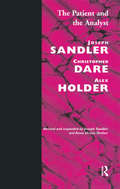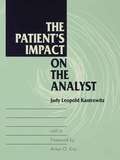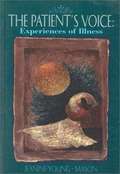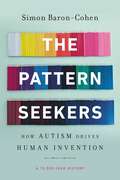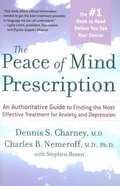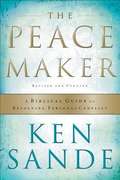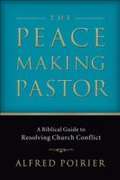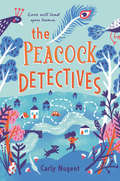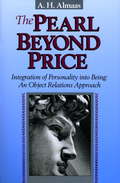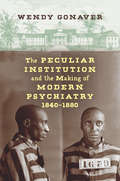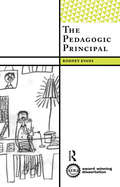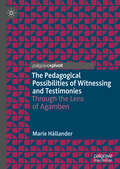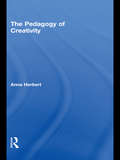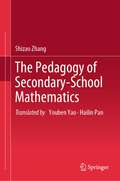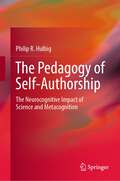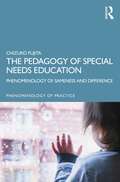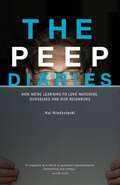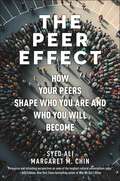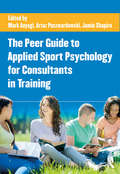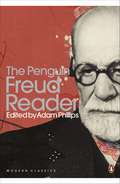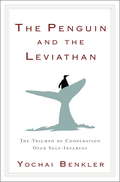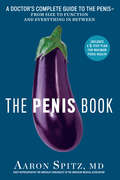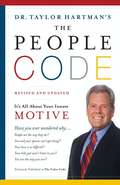- Table View
- List View
The Patient and the Analyst: The Basis of the Psychoanalytic Process
by Joseph SandlerThis is a completely revised and enlarged edition of the well-known classic. In the twenty years since the previous edition was published much progress has been made in regard to the clinical concept of psychoanalysis, and this new edition brings the subject completely up to date. New knowledge of the psychoanalytic process has been added, together with advances in understanding the clinical situation, the treatment alliance, transference, countertransference, resistance, the negative therapeutic reaction, acting out, interpretations and other interventions, insight, and working through. The book is both a readable introduction to the subject and an authorities work of reference.
The Patient's Impact on the Analyst
by Judy L. KantrowitzThe question of how psychoanalysts are affected by their patients is of perennial interest. Edward Glover posed the question in an informal survey in 1940, but little came of his efforts. Now, more than half a century later, Judy Kantrowitz rigorously explores this issue on the basis of a unique research project that obtained data from 399 fully trained analysts. These survey responses included 194 reported clinical examples and 26 extended case commentaries on analyst change. Kantrowitz begins The Patient's Impact on the Analyst by documenting how the process of analysis fosters an interactional process out of which patient and analyst alike experience therapeutic effects. Then, drawing on the clinical examples provided by her survey respondents, she offers a detailed exploration of the ways in which clinically triggered self-reflection represents a continuation of the analyst's own personal understanding and growth. Finally, she incorporates these research findings into theoretical reflections on how analysts obtain and integrate self-knowledge in the course of their ongoing clinical work.This book is a pioneering effort to understand the therapeutic process from the perspective of its impact on the analyst. It provides an enlarged framework of comprehension for recent discussions of self-analysis, countertransference, interaction, and mutuality in the analytic process. Combining a wealth of experiential insight with thoughtful commentary and synthesis, it will sharpen analysts' awareness of how they work and how they are affected by their work.
The Patient's Voice: Experiences of Illness
by Jeanine Young-MasonDo you need to add caring to your course? Do your students need to become more aware of the process patients and families go through as they adapt to an illness or death? Sixteen contemporary autobiographical case studies written by children and adults who have experienced psychiatric and physical illnesses are contained in this unique text. Each case study begins with a brief description of the patient's clinical situation. Chapters are followed by points for discussion and study questions to further direct the exploration of the accounts and enhance students' critical thinking skills.
The Pattern Seekers: How Autism Drives Human Invention
by Simon Baron-CohenA groundbreaking argument about the link between autism and ingenuity.Why can humans alone invent? In The Pattern Seekers, Cambridge University psychologist Simon Baron-Cohen makes a case that autism is as crucial to our creative and cultural history as the mastery of fire. Indeed, Baron-Cohen argues that autistic people have played a key role in human progress for seventy thousand years, from the first tools to the digital revolution.How? Because the same genes that cause autism enable the pattern seeking that is essential to our species's inventiveness. However, these abilities exact a great cost on autistic people, including social and often medical challenges, so Baron-Cohen calls on us to support and celebrate autistic people in both their disabilities and their triumphs. Ultimately, The Pattern Seekers isn't just a new theory of human civilization, but a call to consider anew how society treats those who think differently.
The Peace of Mind Prescription
by Dennis S. CharneyThe Ultimate Guide to Identifying, Treating, and Overcoming Depression and Anxiety Two world-renowned psychiatrists have created a comprehensive and empowering guide to the science and treatment of anxiety and depression. At the heart of their message is the idea that treatment can and must be tailored to the individual and that armed with the right information, patients can get the support they need from their health-care providers. Practical and authoritative, The Peace of Mind Prescription has been unanimously praised as a valuable resource that offers hope to millions of sufferers. Dennis S. Charney, M. D. , is the Dean of Research and the Anne and Joel Ehrenkranz Professor in the departments of psychiatry, neuroscience, and pharmacology and biochemistry at the Mount Sinai School of Medicine. Charles B. Nemeroff, M. D. , Ph. D. , is the Reunette W. Harris Professor and chairman of the department of psychiatry and behavioral sciences at Emory University's School of Medicine.
The Peacebuilding Puzzle
by Barma Naazneen H.Transformative peace operations fall short of achieving the modern political order sought in post-conflict countries because the interventions themselves empower post-conflict elites intent on forging a neopatrimonial political order. The Peacebuilding Puzzle explains the disconnect between the formal institutional engineering undertaken by international interventions, and the governance outcomes that emerge in their aftermath. Barma's comparative analysis of interventions in Cambodia, East Timor, and Afghanistan focuses on the incentives motivating domestic elites over a sequence of three peacebuilding phases: the elite peace settlement, the transitional governance period, and the aftermath of intervention. The international community advances certain forms of institutional design at each phase in the pursuit of effective and legitimate governance. Yet, over the course of the peacebuilding pathway, powerful post-conflict elites co-opt the very processes and institutions intended to guarantee modern political order and dominate the practice of governance within those institutions to their own ends. This title is also available as Open Access.
The Peacemaker
by Ken SandeThis book is a practical guide for all Christians who seek to bring Christ's exhortation, "Blessed are the peacemakers," into their relationships. Attorney Ken Sande is executive director of Peacemaker Ministries. He regularly conciliates business, family employment, and church disputes and serves as a consultant to pastors and attorneys as they work to resolve conflicts outside the courtroom. Sande conducts seminars throughout the United States on biblical conflict resolution. Note: The indexes did not scan properly, and were therefore deleted.
The Peacemaker
by Ken SandeConflict-resolution expert Ken Sande takes readers beyond resolving conflicts to true, life-changing reconciliation with family members, coworkers, and fellow believers.
The Peacemaking Pastor: A Biblical Guide to Resolving Church Conflict
by Alfred PoirierEvery pastor faces conflict in the church, and Alfred Poirier has this loving reminder: we can run, but we can't hide. Jesus set the example as the Incarnate Peacemaker, and Scripture clearly calls his servant-pastors to be ministers of reconciliation. So the issue is not whether to be a mediator but what kind of mediator to be.
The Peacock Detectives
by Carly NugentPerfect for fans of The Vanderbeekers of 141st Street and Waiting for Normal, this charming middle grade mystery is full of heart, humor, and more than a few surprises.Eleven-turning-twelve-year-old Cassie is an expert Peacock Detective.Her sharp eye for details is why the Hudsons from across the street call her every time their pet peacocks wander away. But there are some things even the greatest Peacock Detective can’t figure out, like why her best friend is so angry lately; why her older sister is cutting her hair off; or why her parents are acting like they don’t know each other anymore. Cassie is an expert at solving things. But what’s a master detective to do when her whole world is changing, and all the answers are out of reach?
The Pearl Beyond Price: Integration of Personality into Being, an Object Relations Approach
by A. H. AlmaasIn this book Almaas demonstrates that healthy ego development is part of the continuum of spiritual development. He also establishes the possibility of attaining inner realization and developing our essential being--"the pearl beyond price"--in the context of living a normal human life.
The Peculiar Institution and the Making of Modern Psychiatry, 1840–1880
by Wendy GonaverThough the origins of asylums can be traced to Europe, the systematic segregation of the mentally ill into specialized institutions occurred in the United States only after 1800, just as the struggle to end slavery took hold. In this book, Wendy Gonaver examines the relationship between these two historical developments, showing how slavery and ideas about race shaped early mental health treatment in the United States, especially in the South. She reveals these connections through the histories of two asylums in Virginia: the Eastern Lunatic Asylum in Williamsburg, the first in the nation; and the Central Lunatic Asylum in Petersburg, the first created specifically for African Americans. Eastern Lunatic Asylum was the only institution to accept both slaves and free blacks as patients and to employ slaves as attendants.Drawing from these institutions' untapped archives, Gonaver reveals how slavery influenced ideas about patient liberty, about the proper relationship between caregiver and patient, about what constituted healthy religious belief and unhealthy fanaticism, and about gender. This early form of psychiatric care acted as a precursor to public health policy for generations, and Gonaver's book fills an important gap in the historiography of mental health and race in the nineteenth century.
The Pedagogic Principal (International Institute for Qualitative Methodology Series)
by Rodney EvansUsing an innovative research strategy including empirical, interpretive, and narrative strands, Rod Evans reorients studies of educational administration that have been dominated by organizational theory originating in the world of industry and commerce. Building on a foundation of pedagogical and phenomenological inquiry, he examines administrators’ concrete, lived experience, or “lifeworld practice.” In reconstituting educational administration as pedagogical practice, Evans draws conclusions with profound implications for schools and administrators of every stripe.
The Pedagogical Possibilities of Witnessing and Testimonies: Through the Lens of Agamben
by Marie HållanderThis book explores the pedagogical possibilities of testimony and witnessing. Drawing on the work of Giorgio Agamben, this book highlights the ultimate impossibility of witnessing and testimony: testimonies do not stand outside language, history, politics, or capitalist systems. Through analysis of different aspects of representation, subjectivity and emotions, this book illustrates how testimonies can be used as a way to control student emotions, perceptions and understandings. Testimonies used within teaching can work as a way to reproduce stereotypes of suffering, and can thus consolidate and reinforce exisiting power structures and identities. By exploring these difficulties, the author argues for the value of teaching historical testimonies of suffering that recognize both the impossibilities and possibilities of witnessing and testimony.“Marie Hållander has provided an indispensable guide to re-thinking the pedagogical possibilities of witnessing and testimonies, essential reading for anyone interested in how to approach these topics both critically and pedagogically. Through a lucid theoretical synthesis, this book re-inscribes a dynamic pedagogical dimension into the topics of witnessing and testimony, which have been dominated by historians, psychologists and literary critics. Thinking through the theoretical challenges of witnessing and testimony yet using powerful examples from teaching, Hållander develops a forceful analysis that shows the profound implications of these topics for pedagogical practice.” —Michalinos Zembylas, Open University of Cyprus, Cyprus “Timely and topical, this fascinating book complicates approaches to witnessing, suffering and testimony without diminishing the pedagogical, historical and political significance of sharing, or harkening to, one’s experience. It is a powerful, original and valuable contribution in its field, not only because it weaves its themes in a diligent, reflective and critical manner, but also because it has its own, unique perspective and sensibilities, as these emerge from erudite combination of narrative, pedagogy and philosophy.” —Marianna Papastephanou, University of Cyprus, Cyprus
The Pedagogy of Creativity
by Anna HerbertThe Pedagogy of Creativity represents a groundbreaking study linking the pedagogy of classroom creativity with psychoanalytical theories. Taking a classroom-based example of poststructuralist methodology as its starting point, Anna Herbert’s investigation explores the relationship between creativity seen in psychological activity, such as dreams, and creativity seen in the classroom, asking the following questions: What might a methodology which taps into different forms of creativity look like? Could such a methodology support current neuropsychological theories of memory and learning? What are the consequences of imaginary and symbolic orders of knowledge for the understanding of both conscious and unconscious creativity in the classroom? Exploring the ideas of a number of psychological analysts including Jacques Lacan’s four discourses, concepts of ‘the other’ and the theories of Postructuralist thinkers including Levinas, Mead and Kristeva, Herbert explains how different theories can be used to develop creativity in the classroom and surmount obstacles preventing creative environments. Clearly presenting both theoretical positions and their bearing on classroom practice, teachers at all levels will benefit from this innovative approach to creativity, as will school psychologists and all professionals interested in the links between psychoanalysis and pedagogy. Herbert clearly communicates both theoretical positions and their bearing on classroom practice. Teacher at all levels will benefit from this innovative approach to creativity, as will school psychologists and other professionals interested in the links between psychoanalysis and pedagogy.
The Pedagogy of Secondary-School Mathematics
by Shizao ZhangThis book elucidates the principal aspects and characteristics of secondary school mathematics teaching and learning in China. It combines the cultivation of students' mathematical abilities with the improvement of teaching skills, and explores from both theory and practice to create mathematical pedagogy which has been widely recognized by experts in this field. This book presents a number of mathematics teaching principles and methods, and has been used as an important resource book for mathematics teachers’ education.
The Pedagogy of Self-Authorship: The Neurocognitive Impact of Science and Metacognition
by Philip R. HulbigThis book is a deep dive into the developmental and neurocognitive impact of metacognition and its role in self-transformation. It connects the latest science on learning, neuroplasticity, and self-development with the rich history of metacognitive educational practices, creating an educational vision capable to address difficult issues faced by modern education.This vision highlights self-regulation, self-authorship, and self-transformation as the key learning goals of a free and equitable education system. This model of education is grounded in science, problem solving and is capable of addressing the needs of a neurologically diverse humanity. Interviews from experts at Program for the Advancement of Learning (PAL) are integrated with the author’ autobiographical account of their transformative learning experience, to provide evidence on the effectiveness of utilizing a metacognitive pedagogy in promoting transformative learning.The book concludes with a general pedagogy of metacognitive instruction that integrates the scientific method with the development of an individual's theory of mind to induce expansive personal development and achievement. This book would be of interest to educators and scholars, as well as practitioners supporting neurodivergent students and employees, neurodiversity advocates, and critical disability studies researchers.
The Pedagogy of Special Needs Education: Phenomenology of Sameness and Difference (Phenomenology of Practice)
by Chizuko FujitaThe Pedagogy of Special Needs Education: Phenomenology of Sameness and Difference outlines how to understand the inner and behavioral lives of children with intellectual disability through the psychology and phenomenology of "stories" derived from the experiences of living with these children. The book inquires into the meaning of the experiences of children with intellectual developmental disability using a phenomenological method. It examines how the external behaviors of children with special needs may look different from children without these needs but actually do share many similarities at the phenomenological level of lived experience. Themes of difference and sameness are employed for exploring the significances of phenomena such as "finger play," "eating as selffeeding," "smiling and turn-taking," "self-talk," and "don’t touch me." Throughout the narrating and interpreting of the case studies within the book, the author shows the tensional dialectic between individual and collective difference in order to understand what is required to help children with intellectual disability become themselves and form their personal self-identity. The Pedagogy of Special Needs Education can be used in schools, seminars, and courses related to special education programs and in special needs curricula for children with developmental disabilities. It can also support childcare professionals who carry orthopedagogical responsibilities and who are concerned about the wellbeing of children and their families experiencing special needs. Additionally, this book is valuable to students, researchers, teachers, and others interested in a hermeneutic phenomenological approach to human science, professional practice issues, and qualitative research methods.
The Peep Diaries
by Hal Niedzviecki"Take a peek at The Peep Diaries, an erudite (but not too erudite) look at the culture that Facebook, Twitter, et al. have spawned."--Real Simple "It's a great read; it mixes frank interviews with people pushing the boundaries of voyeurism and exhibitionism, alongside a bracing critique of the social context that got us into peep culture and the forces that now exploit our participation in it."--The Globe and Mail We have entered the age of "peep culture": a tell-all, show-all, know-all digital phenomenon that is dramatically altering notions of privacy, individuality, security, and even humanity. Peep culture is reality TV, YouTube, MySpace, Facebook, Twitter, over-the-counter spy gear, blogs, chat rooms, amateur porn, surveillance technology, Dr. Phil, Borat, cell phone photos of your drunk friend making out with her ex-boyfriend, and more. In the age of peep, core values and rights we once took for granted are rapidly being renegotiated, often without our even noticing. With hilarious, exasperated acuity, social critic Hal Niedzviecki dives into peep, starting his own video blog, joining every social network that will have him, monitoring the movements of his toddler, selling his secrets on Craigslist, hiring a private detective to investigate him, spying on his neighbors, trying out for reality TV shows, and stripping for the pleasure of a web audience he isn't even sure exists. Part travelogue, part diary, part meditation and social history, The Peep Diaries explores a rapidly emerging digital phenomenon that is radically changing not just the entertainment landscape, but also the firmaments of our culture and society. The Peep Diaries introduces the arrival of the age of peep culture and explores its implications for entertainment, society, sex, politics, and everyday life. Mixing first-rate reporting with sociological observations culled from the latest research, this book captures the shift from pop to peep and the way technology is turning gossip into documentary and Peeping Toms into entertainment journalists. Packed with stranger-than-fiction true-life characters and scenarios, The Peep Diaries reflects the aspirations and confusions of the growing number of people willing to trade the details of their private lives for catharsis, attention, and notoriety. Hal Niedzviecki is the editor of Broken Pencil magazine and has published numerous works of social commentary and fiction, including Hello I'm Special: How Individuality Became the New Conformity.
The Peer Effect: How Your Peers Shape Who You Are and Who You Will Become
by Syed Ali Margaret M. ChinHow the power of peers and peer culture shapes individual behavior and future successFor decades, parents across America have asked their kids, “If your friends jumped off a bridge, would you?” The answer is, “Duh, yes.” Peers, as parents well know, have a tremendous impact on who their kids are and what they will become. And even while they insist otherwise, parents know that they’re largely powerless to change this. But the effect of peers is not just a story about kids; peers can also affect adult behavior—they affect what we do and who we are well into old age. Noted sociologists Syed Ali and Margaret M. Chin call this “the peer effect.” In their book, they take readers on a tour of how our peers, and the peer cultures they create, shape our behavior in schools and the workplace. Ali and Chin begin their look at the peer effect at the high school from which they both graduated: New York City’s prestigious Stuyvesant High School, arguably the best public high school in the nation. Through a fascinating and often humorous narrative, they show how peers can influence each other—in this case, how highly motivated students can create a culture of influence to achieve success in learning and in admission to elite colleges. They also show the many other ways that peers can influence one another beyond school performance, from hookup culture to school bullying and youth suicide.Ali and Chin are also interested in the extent to which the peer effect can last. Through interviews with adult graduates of Stuyvesant, they investigate the long-lasting effects of high school peer culture. They also examine the peer effect in post–high school settings, notably around workplace misconduct, including the steroid culture in baseball and the use of excessive force by the police. The Peer Effect ultimately offers ways to understand the power of peer influence and apply this understanding to resolving issues regarding schools, college graduation rates, workplace culture, and police violence. In the tradition of big idea books like The Tipping Point, The Peer Effect will forever change the way we look at the world of human behavior.
The Peer Guide to Applied Sport Psychology for Consultants in Training
by Mark W. Aoyagi Artur Poczwardowski Jamie L. ShapiroSuccessful sport psychology professionals have benefitted from stimulating conversations, challenging questions, support, camaraderie, guidance, and advice offered by their graduate school classmates. Peer relationships are vital and valued aspects of professional development, with many of the relationships formed during school, serving as the closest confidences and strongest friendships throughout careers and lifetimes. Yet, the voices and experiences of fellow graduate students are sparsely reported in the sport psychology literature, and profoundly silent in textbooks. The Peer Guide to Applied Sport Psychology for Consultants in Training provides a platform for the influential voices of peers, with whom graduate students relate and connect on a visceral level. Mimicking the environment of a thriving classroom, each chapter within the Peer Guide is primarily authored by graduate students, or in some cases recent graduates, with an academic mentor serving a secondary role. The chapter topics were selected by the editors—all of whom are experienced graduate instructors and have taught and mentored many young professionals—as areas where graduate students are commonly challenged, and correspondingly, where peer support and guidance are most valued. These topics include developing a theoretical orientation to performance excellence, utilizing science to guide practice, ethics, getting the most from supervision, initial experiences in consultation, working with both individuals and groups, and multicultural considerations. The chapters are written in a personal, relatable tone and provide science and practice, challenge and comfort, humor and vulnerability, and insights and anecdotes that are particularly meaningful and accessible coming from peers. A unique addition to the sport psychology literature, this volume is a key resource for developing and established consultants alike.
The Penguin Freud Reader (Penguin Modern Classics)
by Sigmund FreudHere are the essential ideas of psychoanalytic theory, including Freud's explanations of such concepts as the Id, Ego and Super-Ego, the Death Instinct and Pleasure Principle, along with classic case studies like that of the Wolf Man. Adam Phillips's marvellous selection provides an ideal overview of Freud's thought in all its extraordinary ambition and variety. Psychoanalysis may be known as the 'talking cure', yet it is also and profoundly, a way of reading. Here we can see Freud's writings as readings and listenings, deciphering the secrets of the mind, finding words for desires that have never found expression. Much more than this, however, The Penguin Freud Reader presents a compelling reading of life as we experience it today, and a way in to the work of one of the most haunting writers of the modern age.
The Penguin and the Leviathan: How Cooperation Triumps Over Self-interest
by Yochai BenklerWhat do Wikipedia, Zip Car's business model, Barack Obama's presidential campaign, and a small group of lobster fishermen have in common? They all show the power and promise of human cooperation in transforming our businesses, our government, and our society at large. Because today, when the costs of collaborating are lower than ever before, there are no limits to what we can achieve by working together.For centuries, we as a society have operated according to a very unflattering view of human nature: that, humans are universally and inherently selfish creatures. As a result, our most deeply entrenched social structures - our top-down business models, our punitive legal systems, our market-based approaches to everything from education reform to environmental regulation - have been built on the premise that humans are driven only by self interest, programmed to respond only to the invisible hand of the free markets or the iron fist of a controlling government. In the last decade, however, this fallacy has finally begun to unravel, as hundreds of studies conducted across dozens of cultures have found that most people will act far more cooperatively than previously believed. Here, Harvard University Professor Yochai Benkler draws on cutting-edge findings from neuroscience, economics, sociology, evolutionary biology, political science, and a wealth of real world examples to debunk this long-held myth and reveal how we can harness the power of human cooperation to improve business processes, design smarter technology, reform our economic systems, maximize volunteer contributions to science, reduce crime, improve the efficacy of civic movements, and more. For example, he describes how: * By building on countless voluntary contributions, open-source software communities have developed some of the most important infrastructure on which the World Wide Web runs * Experiments with pay-as-you-wish pricing in the music industry reveal that fans will voluntarily pay far more for their favorite music than economic models would ever predic * Many self-regulating communities, from the lobster fishermen of Maine to farmers in Spain, live within self-regulating system for sharing and allocating communal resources * Despite recent setbacks, Toyota's collaborative shop-floor, supply chain, and management structure contributed to its meteoric rise above its American counterparts for over a quarter century. * Police precincts across the nation have managed to reduce crime in tough neighborhoods through collaborative, trust-based, community partnerships. A must-read for anyone who wants to understand the dynamics of cooperation in 21st century life, The Penguin and the Leviathan not only challenges so many of the ways in which we live and work, it forces us to rethink our entire view of human nature.From the Hardcover edition.
The Penis Book: A Doctor's Complete Guide to the Penis-From Size to Function and Everything in B etween
by Aaron SpitzWhat’s the weirdest thing you’ve ever wanted to know about the penis but were afraid to ask? Dr. Aaron Spitz has that answer—and many more. Let Dr. Spitz—who served as assistant clinical professor at UC Irvine's Department of Urology for 15 years and who is a regularly featured guest on The Doctors—become your best friend as he fearlessly guides you through the hairiest and the scariest questions in The Penis Book. An unflinching, comprehensive guide to everything from sexually transmitted infections to the science of blood flow, The Penis Book prominently features an easy-to-follow holistic five-step plan for optimum penis health, including plant-based eating recommendations, information on some penis-healthy foods, and suggested exercises for penis wellbeing. Useful to men and women alike, The Penis Book is a one-stop-shop for the care and maintenance of the penis in your life.
The People Code: It's All About Your Innate Motive
by Taylor HartmanIn his life-changing book, Dr. Taylor Hartman introduces you to the People Code and why people do what they do. The concept of Motive is a fresh method for analyzing your own innate personality as well as that of those around you. You then have the ability to utilize that knowledge to improve workplace and personal relationships. As an author, psychologist, and leadership coach, Dr. Hartman offers a remarkably astute system for segmenting everyone into specific Motive-types denoted by a color: Red (power wielders), Blue (do-gooders), White (peacekeepers), and Yellow (fun lovers). He then explains how to ensure that all possible alliances between them function at optimum effectiveness. If you struggle with self-acceptance and have questions about why you and others act the way you do, Dr. Hartman and The People Code can help you maximize your life success by improving your day-to-day relationships.
